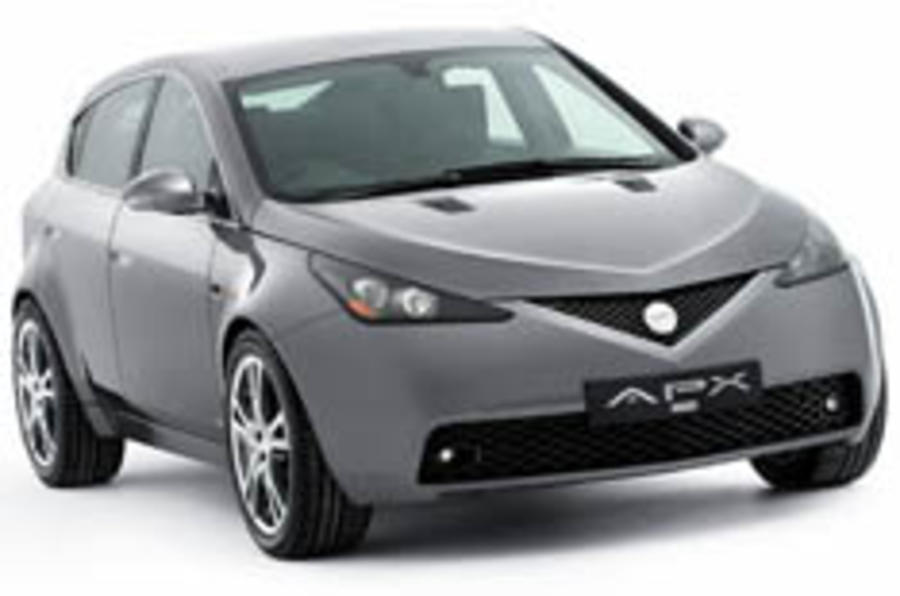Lotus has built a crossover 4x4: this APX (Aluminium Performance Crossover) is the first vehicle to be completely built on its Versatile Vehicle Architecture, which will also form the basis for the forthcoming mid-engined Esprit replacement - scheduled for 2008. The APX seats seven, drives all four wheels, reaches 60mph in five seconds dead and finishes up at 152mph. That’s thanks to a kerbweight of 1570kg and a 300bhp, 265lb ft supercharged 3.0-litre V6, designed by Lotus Engineering. It is part of a prototype family of engines, which includes a normally aspirated 3.0-litre V6 and a 2.2-litre. The APX’s unit weighs just 171kg.
Lotus claims combined fuel consumption will be 32mpg and that the engine is a production possibility as the specification was to avoid exotic materials or intricate manufacturing technologies. The car is mainly constructed of aluminium, held together with Lotus’s ‘Riv-Bonding’ joining techniques: adhesive bonding, self-piercing rivets and flow-drill screws.
The biggest claim is that this is a prototype, not a concept; it could, according to Lotus, very easily enter production. This is allegedly a ‘Jekyll and Hyde’ car: it can cope with occasional offroad use and can also satisfy the sporting driver; for the car enthusiast with kids.
Both engine and platform, claims Lotus, point towards the future of low volume niche manufacture. Lotus’ VVA technology offers a way to bridge the gap between the economies of building at medium volumes whilst making the smaller volumes that niche markets demand.
Whilst the APX is a showcase for Lotus’ clients, it is also a statement of intent that Lotus can bridge its own gap - between the sophisticated work it carries out for its global clientele and its own limited and ageing car range.
The critical element of VVA are the so-called corner nodes - castings which provide the foundation of the structure - which allow the VVA to be switched between front-engine and mid-engine.
The APX’s distinctive styling suggests that the concept could have originally been commissioned by Lotus’s owners Proton. However, Proton has found itself in a crisis after a long-proposed tie-up with Volkswagen collapsed, leaving the tiny Malaysian carmaker adrift in an increasingly global market.





Add your comment